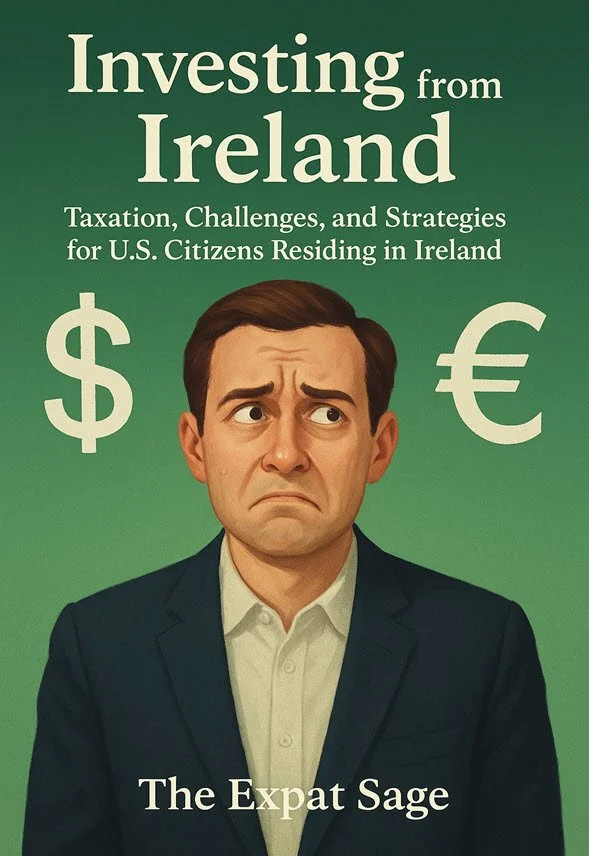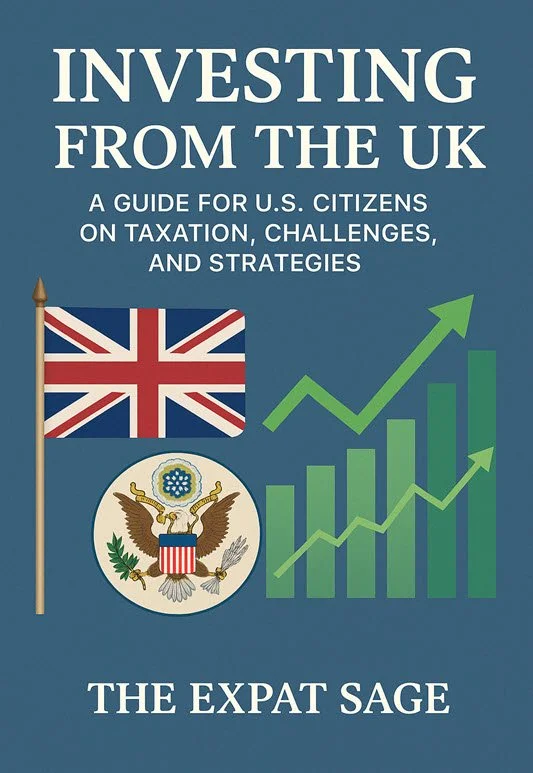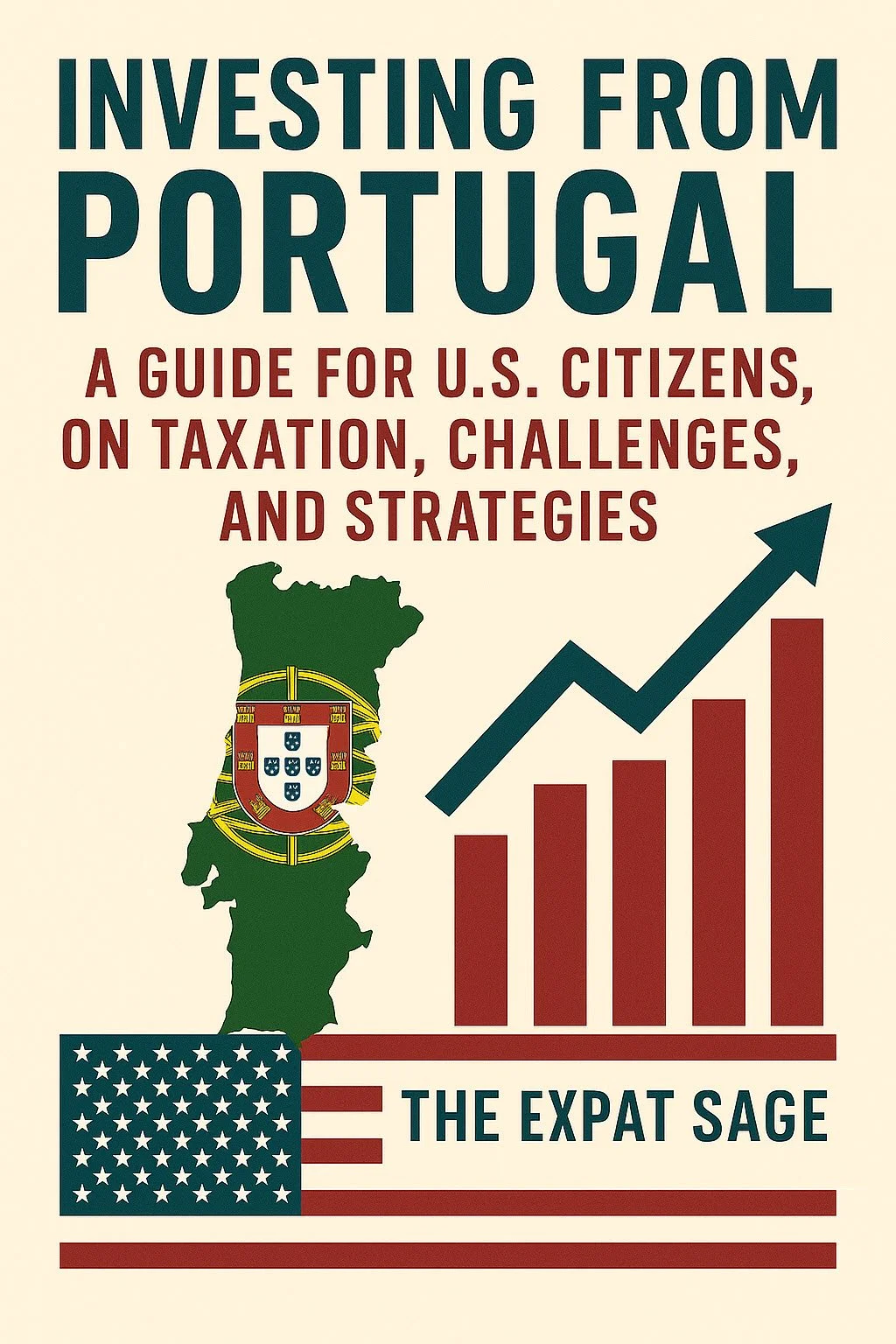Navigating the Labyrinth: Investing Abroad for U.S. Citizens and Resident Aliens
Investing while living abroad as a U.S. citizen or resident alien presents a unique and often bewildering set of challenges. Beyond the universal goals of wealth creation and financial security, U.S. expatriates must navigate a complex web of U.S. tax laws, foreign regulations, and cross-border financial intricacies. Failure to understand and address these complexities can lead to significant financial penalties, missed investment opportunities, and considerable stress. This article delves into the key issues every U.S. person investing overseas needs to consider.
The PFIC Pitfall: A Taxing Problem with Foreign Funds
One of the most significant hurdles is the U.S. tax regime for Passive Foreign Investment Companies (PFICs). Broadly, a foreign corporation is a PFIC if 75% or more of its gross income is passive (e.g., interest, dividends, capital gains) or if at least 50% of its assets produce or are held to produce passive income. This definition ensnares most foreign-domiciled mutual funds and exchange-traded funds (ETFs) – common investment vehicles for many.
Owning PFICs triggers onerous U.S. tax consequences and reporting. Investors typically face punitive tax rates on distributions and gains, often with an added interest charge, as the IRS seeks to eliminate any tax deferral advantage. Electing alternative tax treatments, such as a Qualified Electing Fund (QEF) or Mark-to-Market, can sometimes offer relief but come with their own stringent requirements and complexities, including the need for detailed information from the foreign fund, which is often unavailable. Each PFIC generally requires filing Form 8621, a notoriously complex and time-consuming form. Due to these rules, many U.S. expats are advised to avoid non-U.S. domiciled funds altogether.
U.S. Reporting Obligations: The Long Arm of the IRS
The U.S. taxes its citizens and resident aliens on their worldwide income, regardless of where they live. This principle underpins a host of reporting obligations that are critical for expats to understand:
Form 1040 (U.S. Individual Income Tax Return): The foundational requirement to report all global income.
FinCEN Form 114 (Report of Foreign Bank and Financial Accounts - FBAR): Required if the aggregate value of foreign financial accounts exceeds $10,000 at any time during the calendar year. This includes bank accounts, brokerage accounts, and potentially other types of financial accounts held outside the U.S. Penalties for non-compliance can be severe.
Form 8938 (Statement of Specified Foreign Financial Assets - FATCA): Filed with the U.S. tax return if total specified foreign financial assets exceed certain thresholds (which vary based on filing status and residency). FATCA also imposes reporting requirements on foreign financial institutions, leading some to be hesitant to work with U.S. clients.
Other Forms: Depending on the type of foreign assets or entities owned (e.g., foreign corporations, trusts, partnerships), additional forms like Form 5471, Form 3520, or Form 8865 may be necessary.
These reporting requirements are complex and carry substantial penalties for non-compliance, even if unintentional.
Asset Location: Where You Hold Matters
Strategic asset location is crucial. While it might seem convenient to consolidate investments in your country of residence, U.S. tax rules (especially PFIC regulations) often make it more advantageous to hold most investment assets, particularly U.S.-based securities like U.S. stocks, bonds, and U.S.-domiciled ETFs, in U.S.-based brokerage accounts.
Foreign bank accounts are often necessary for daily living expenses in the local currency. However, holding significant investment capital in foreign accounts can trigger PFIC issues if invested in local funds, attract higher fees, and complicate U.S. tax reporting. Retirement accounts, such as 401(k)s and IRAs, are generally best kept within the U.S. system to maintain their tax-advantaged status under U.S. law, though contributions while abroad can be complex.
Investment Risk: Beyond Market Volatility
U.S. expats face an array of investment risks, some familiar, others unique to their situation:
Currency Risk: Fluctuations in exchange rates between the U.S. dollar and the local currency can significantly impact investment returns and purchasing power. A strong dollar can diminish the value of foreign assets when converted back, while a weak dollar can inflate living costs if income is dollar-denominated.
Political and Economic Instability: Depending on the host country, investments may be subject to higher risks from political upheaval, economic downturns, or changes in local laws that could affect property rights or capital repatriation.
Regulatory Differences: Investor protection laws, disclosure requirements, and market transparency can vary significantly from U.S. standards, potentially exposing investors to greater risks.
PFIC Risk: As discussed, inadvertently investing in PFICs is a major tax risk.
Brokerage Accounts: Access and Restrictions
Opening and maintaining brokerage accounts can be a significant challenge. Many U.S. brokerage firms are hesitant to service clients with foreign addresses due to the complexities of FATCA compliance and varying international regulations (like MiFID II in Europe). This can lead to account closures or restrictions on new purchases.
Conversely, opening an account with a foreign brokerage in the country of residence might seem like a solution, but these institutions rarely offer U.S.-domiciled investment products, increasing the likelihood of encountering PFICs and often involving higher fees. Finding a U.S.-based brokerage that is "expat-friendly" is often the preferred, though sometimes difficult, route.
Costs: The Price of Investing Abroad
Investing as an expat can be more costly. Foreign financial institutions often charge higher management fees, transaction costs, and custody fees compared to their U.S. counterparts. The complexity of U.S. tax compliance often necessitates professional tax advice, adding another layer of expense. Furthermore, the tax implications of PFICs, if not carefully managed, can lead to substantially higher effective tax rates on investment gains.
The Currency Trap: Managing Foreign Exchange
The currency trap for an individual investor refers to the risks and costs associated with managing multiple currencies. Holding too much cash or investments in a currency that depreciates against the U.S. dollar (or the currency of future liabilities) can erode wealth. Conversely, needing to convert currencies frequently for living expenses or investment transactions can incur significant conversion fees and expose the investor to unfavorable exchange rate movements. Matching assets to liabilities in the same currency where possible can be a mitigating strategy.
Possible Different Calendars: Fiscal Year Mismatches
While the U.S. operates on a calendar fiscal year for individuals (January 1 - December 31), the country of residence may have a different fiscal year. This discrepancy doesn't change the U.S. reporting deadline (though extensions are available for expats) but can complicate the gathering of financial information for tax purposes. For instance, when claiming foreign tax credits, income and taxes paid in the foreign jurisdiction must be accurately allocated and converted to align with the U.S. tax year, which can be administratively burdensome.
Diverging Capital Gains: Navigating Two Tax Systems
The U.S. taxes its citizens on worldwide capital gains. The rate depends on whether the gain is short-term (held for one year or less, taxed at ordinary income rates) or long-term (held for more than one year, taxed at lower preferential rates).
The complexity arises because the host country will also have its own rules for taxing capital gains, which may differ significantly in terms of rates, what constitutes a taxable gain, and available exemptions (e.g., on a primary residence). While foreign tax credits can often be used to offset U.S. tax liability on gains also taxed by the foreign country, the interaction between the two systems can be intricate, especially if the timing of gain recognition or cost basis calculations differ.
Possible Double Taxation of Dividends
Dividends from both U.S. and foreign sources are generally taxable by the U.S. If an expat receives dividends from a company in their country of residence, that country may also tax this income. This creates the potential for double taxation.
Fortunately, mechanisms exist to mitigate this:
Foreign Tax Credit (FTC): Allows U.S. taxpayers to credit taxes paid to a foreign government against their U.S. tax liability on foreign-source income.
Tax Treaties: The U.S. has income tax treaties with many countries. These treaties often provide preferential withholding rates on dividends or specify which country has the primary right to tax such income, aiming to prevent double taxation.
Qualified Dividends: Certain U.S. and foreign dividends may qualify for lower U.S. tax rates, similar to long-term capital gains.
Understanding the interplay of these provisions is crucial.
Estate and Gift Tax Considerations: Planning for the Future
U.S. citizens are subject to U.S. estate and gift taxes on their worldwide assets, regardless of where they reside at the time of death or when a gift is made. Resident aliens may also be subject to these taxes depending on their domicile.
Key considerations include:
High Exemption Amounts: The U.S. currently has a very high federal estate and gift tax exemption ($13.99 million per individual in 2025), meaning most U.S. expats will not owe federal estate tax. However, this exemption is subject to change by legislation.
State Estate/Inheritance Taxes: Some U.S. states have their own estate or inheritance taxes, which may apply even if no federal tax is due, depending on the individual's last U.S. domicile.
Foreign Death Taxes and Treaties: The country of residence may also impose estate or inheritance taxes. The U.S. has estate and gift tax treaties with a number of countries to prevent double taxation of estates, which may provide credits or determine which country has taxing priority.
Gifting Rules: The U.S. has annual gift tax exclusions (e.g., $19,000 per recipient in 2025) that allow for tax-free transfers.
Reporting Foreign Gifts/Inheritances: U.S. persons receiving gifts or bequests from foreign persons above certain thresholds must report them to the IRS on Form 3520, even if they are not taxable in the U.S.
Proper estate planning, considering both U.S. and foreign laws and relevant treaties, is essential for U.S. expats with significant assets.
Conclusion: Seek Expert Guidance
Investing while living abroad as a U.S. citizen or resident alien is fraught with complexities that demand careful attention and planning. The U.S. tax system's worldwide reach, coupled with the specific anti-deferral regime of PFICs and extensive reporting requirements, means that specialized knowledge is indispensable. Issues like asset location, currency management, brokerage account limitations, and cross-border tax implications for capital gains, dividends, and estates further complicate the financial landscape.
Given the potential for costly mistakes, U.S. expats are strongly encouraged to seek advice from financial advisors and tax professionals who specialize in cross-border taxation and investment management for Americans living abroad. Proactive planning and expert guidance are the keys to successfully navigating this intricate financial world and achieving long-term financial goals.
-
Instructions for Form 8621 (12/2024) | Internal Revenue Service
Passive Foreign Investment Companies - The Tax Adviser
Frequently asked questions (FAQs) about international individual tax matters - IRS
Report Foreign Bank and Financial Accounts | FinCEN.gov
Guide to taxes on foreign income for U.S. citizens - Thomson Reuters tax
Summary of FATCA Reporting for US Taxpayers - Deskera
Understanding U.S. Tax Reporting for Foreign Investments | Key IRS Forms & Compliance
Moving Overseas? Don't Close Your U.S. Brokerage Account! - Creative Planning
What Is FBAR? Comprehensive Guide to Foreign Bank Account Reporting
Investing as an American Expat | Cerity Partners
Currency Risk: Why It Matters to You | FINRA.org
Americans Should Avoid Owning Shares in a Non-U.S. Mutual Fund - Creative Planning
Why Major U.S. Brokerage Firms Are Closing Accounts Owned by Foreign Residents
Tips for Investing as an American Expat | Creative Planning International
What To Know About Tax Compliance for Businesses - TaxRobot
PFIC: What U.S. Investment Funds Should be Particularly… | Fenwick
What is a Currency Conversion Fee? The Cost of Exchange Rates - DNBC Financial Group
2024 and 2025 Capital Gains Tax Rates and Rules - NerdWallet
United States income tax treaties - A to Z | Internal Revenue Service
Publication 515 (2025), Withholding of Tax on Nonresident Aliens and Foreign Entities - IRS
Estate & gift tax treaties (international) | Internal Revenue Service
Last updated: May 10, 2025


